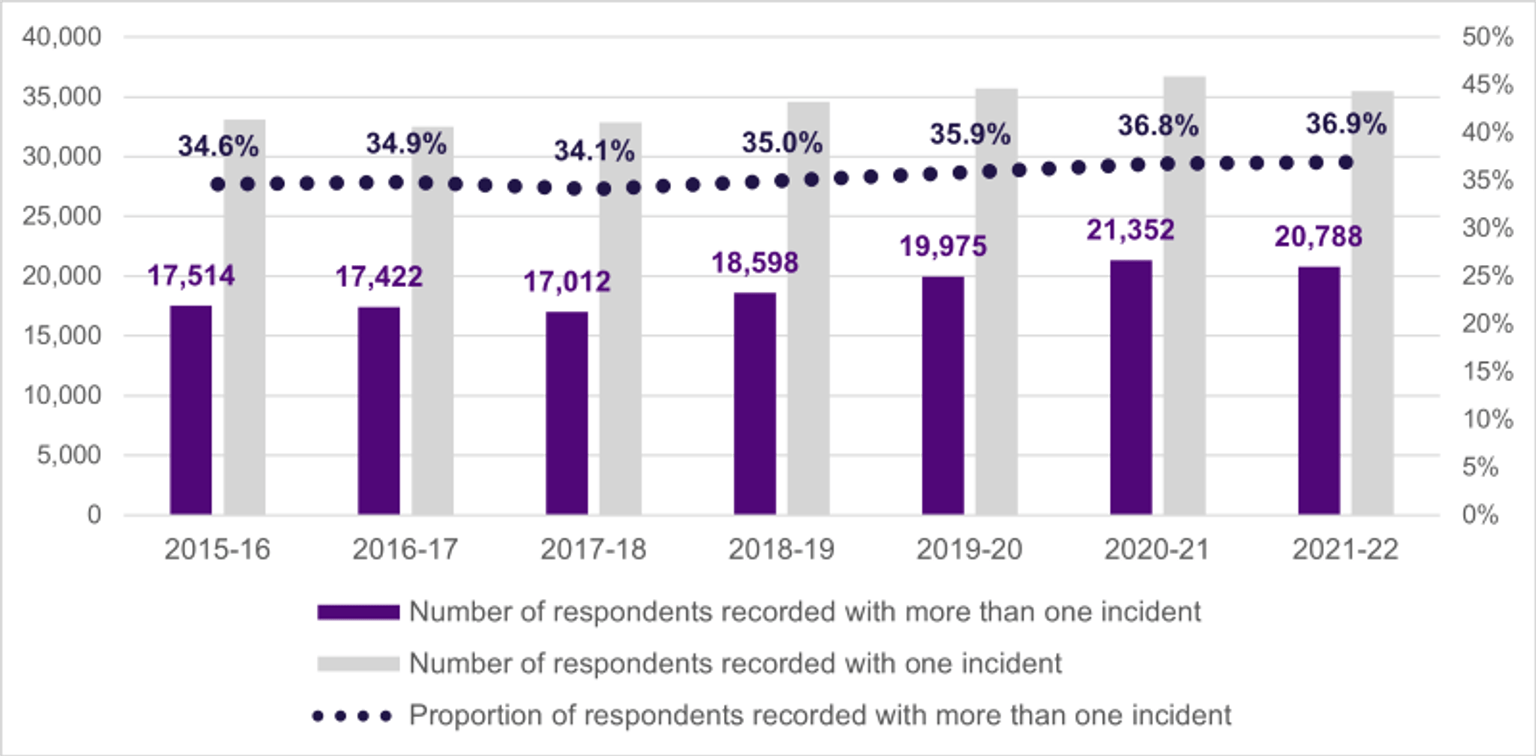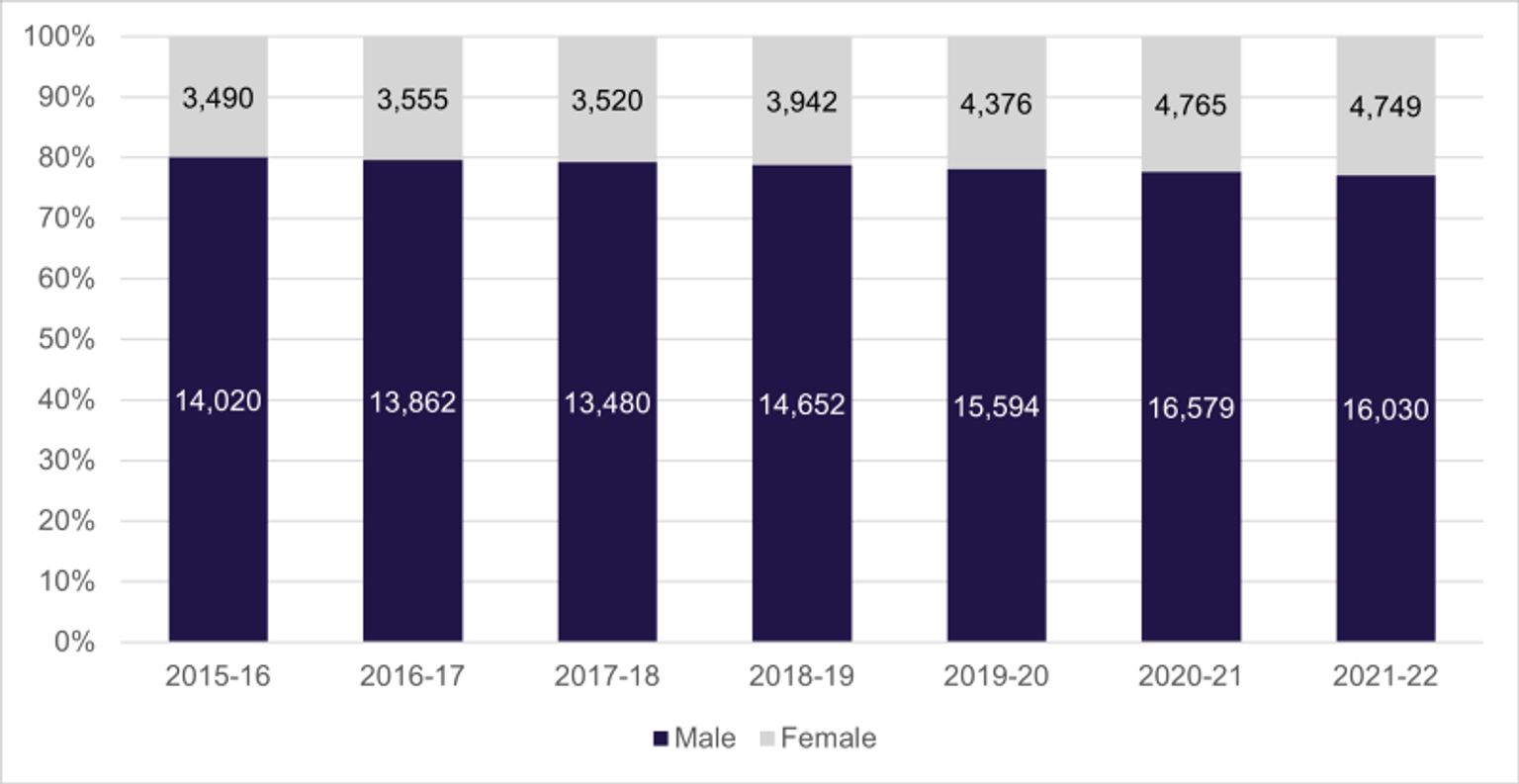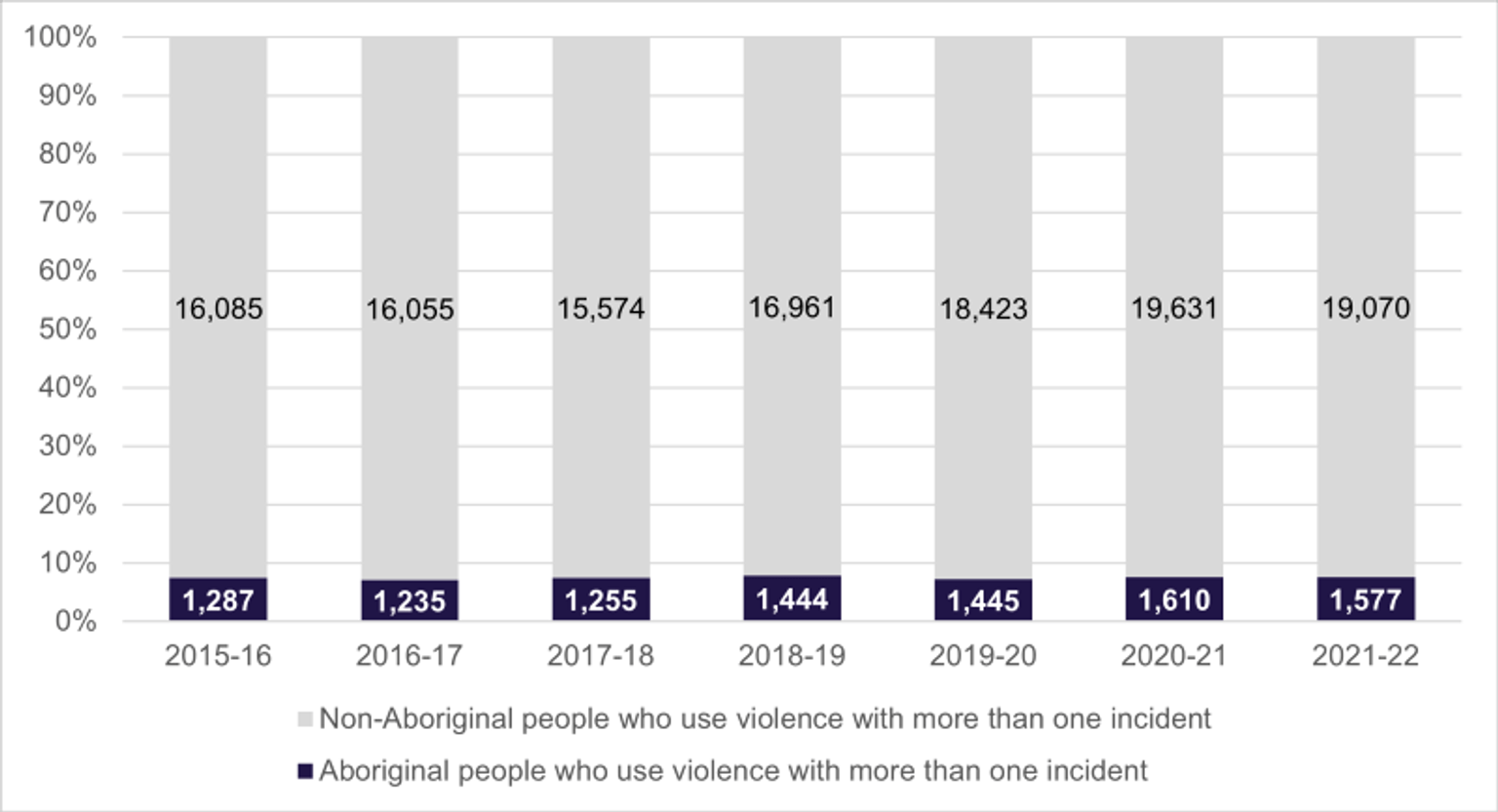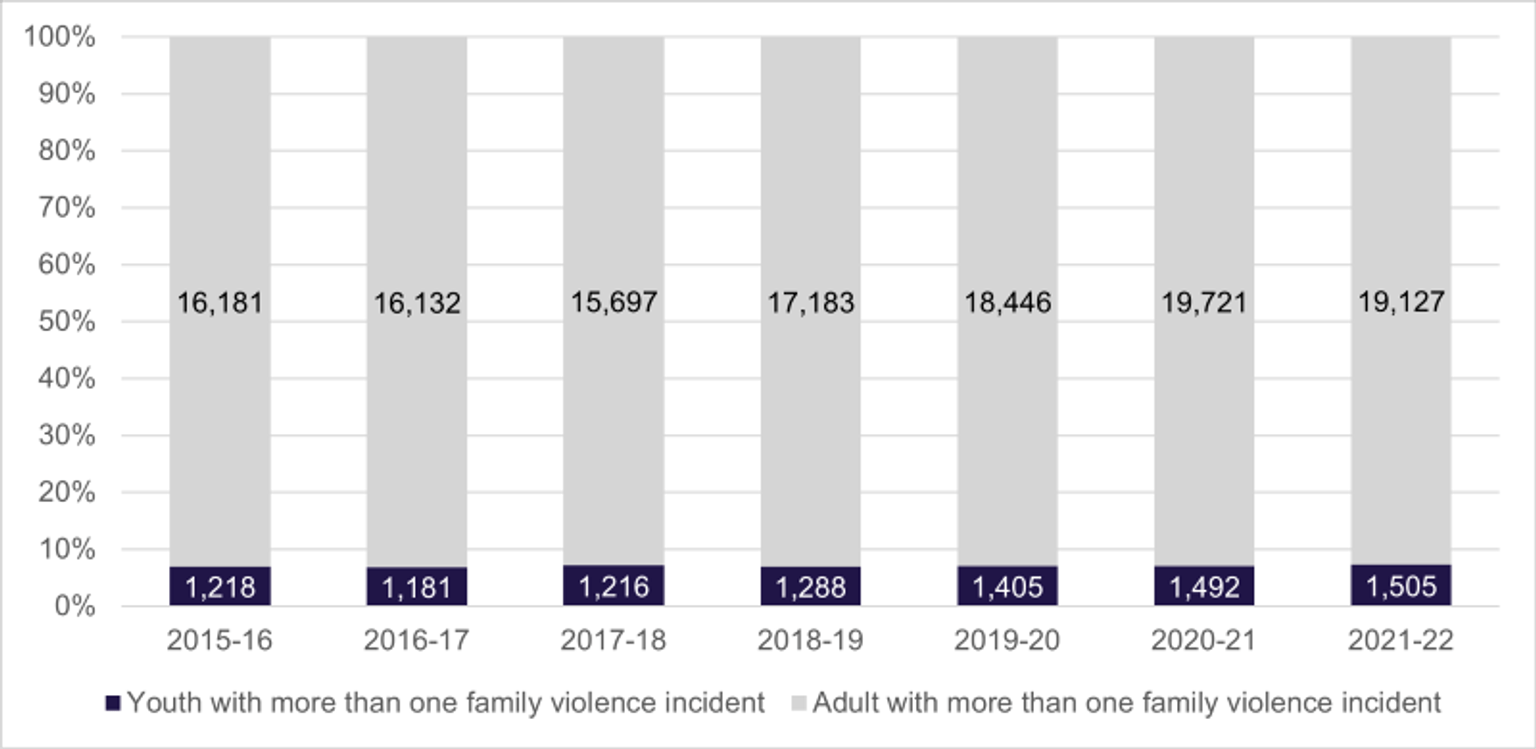Indicator: Reduction in all family violence behaviours
Measure: Number/proportion of individuals identified as the respondent in an L17 report who receive a subsequent L17 report within 12 months
A family violence incident is an incident attended by Victoria Police where a Family Violence Report (known as an L17 report) is completed. The Family Violence Report is a risk assessment and risk management tool for frontline police.
In 2021–22, just over one-third of respondents (36.9 per cent) were associated with more than one reported family violence incident over a 365-day period.
The proportion of respondents with more than one reported family violence incident has not changed substantially over time.
Measure: Number of males and females identified as the respondent in an L17 report who receive a subsequent L17 report within 12 months
During the seven-year period, male respondents were more likely to be recorded with subsequent incidents.
In 2021–22, females accounted for 22.8 per cent of respondents with more than one family violence incident. This reflects an increase from 2015–16 when females represented 19.9 per cent of respondents with more than one incident.
The Victorian Government recognises the number of female respondents may be inflated in this data due to misidentification of the predominant aggressor. While the exact prevalence of perpetrator misidentification is unknown, stakeholders engaged with the Family Violence Reform Implementation Monitor’s (FVRIM) work on the Accurate identification of the predominant aggressor in 2021 indicated it continues to occur too often, with harmful consequences for victim survivors.
In 2022, the MARAM Predominant Aggressor Identification tool and practice guidance was launched to support professionals across the family violence system, including police, to accurately identify perpetrators of family violence who are claiming to be victims.
The Victorian Government is undertaking further work to develop responses to the FVRIM’s proposed actions, including system improvements to reduce misidentification.
Measure: Number of Aboriginal people identified as using violence in an L17 report who receive a subsequent L17 report within 12 months
The proportion of people with more than one family violence incident who identify as Aboriginal and/or Torres Strait Islander has remained stable since 2015-16 (between 7.1 and 7.8 per cent).
Measure: Number of children identified as the respondent in an L17 report who receive a subsequent L17 report within 12 months.
In 2021–22, children accounted for approximately 7.2 per cent of people who use violence with more than one incident, with this remaining stable over time.
While this measure sits within the ‘perpetrator’ domain of the Family Violence Outcomes Framework, in Victoria, we do not refer to children and young people as perpetrators. The term ‘young people using family violence’ is used, recognising their developmental age and stage.
Updated



